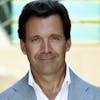Aligned For The Future: How We Merged, Rebranded & Built Tech To Help Hotels Navigate An AI-Powered World - Vic Chynoweth, Otelier [Sponsor Bonus]
![Aligned For The Future: How We Merged, Rebranded & Built Tech To Help Hotels Navigate An AI-Powered World - Vic Chynoweth, Otelier [Sponsor Bonus] Aligned For The Future: How We Merged, Rebranded & Built Tech To Help Hotels Navigate An AI-Powered World - Vic Chynoweth, Otelier [Sponsor Bonus]](https://images.podpage.com/https%3A%2F%2Fimages.podpage.com%2Fhttps%253A%252F%252Fstorage.buzzsprout.com%252Fvariants%252F8tmqmcoj1vl29w27uu3ybqtnd8fv%252F60854458c4d1acdf4e1c2f79c4137142d85d78e379bdafbd69bd34c85f5819ad.jpg%3Fauto%3Dformat%26fill%3Dblur%26fit%3Dfill%26h%3D630%26w%3D1200%26s%3Da159c509aabc5d6f0be96fd060f493ea?auto=format%2Ccompress&w=100&s=7163d2e573b41a5eb6102037087eb68f)
Vic Chynoweth is the CEO of Otelier, formerly known as My Digital Office or MDO, and in this special episode, he talks about why they rebranded and the opportunities he sees in hospitality with technology today. Listen to learn what it takes to successfully bring together people and companies into an aligned, effective organization as well as new opportunities AI-powered technology is opening up for hoteliers today.
Do you want your teams to make better decisions and free them up to provide the best hospitality? You should meet Otelier - the software behind every great host. Otelier brings together the best features and functionality from MDO, Datavision, inTouch, HelloGM, Focal Revenue Solutions, and Broadvine to deliver a unified platform that meets the evolving needs of today's hotelier. Their product suite is built to optimize your portfolio’s performance and make work more rewarding for both you and your teams - presenting the right information at the right time to make the best decisions more quickly and improve operational efficiency. Learn more at Otelier.io
Music by Clay Bassford of Bespoke Sound: Music Identity Design for Hospitality Brands
Josiah: I'd like to kick us off talking very high level and give our listeners a little bit of context and start with the news.
Vic: Yes. As of today, we are now Otelier and that includes all of our legacy brands. MDO is a collection of several different brands and all those brands are now under the single brand Otelier, which we're really excited about and Otelier, where do we come up with it? We really think about ourselves as the hospitality software company behind every great host and Otelier just kind of fits with that exceptionally well, we think and aligns with what we're trying to do for our customers.
Josiah:
Incredible. We're going to get into a lot in our conversation because I want our listeners to understand not only what you offer and how you're helping hotels, but the why and the how behind everything that you've done. Because so many of our listeners have gone through acquisitions, they've gone through mergers, they're thinking, how do we position ourselves strategically for success? How do we integrate cultures? You have dealt with all of that and you are working through this to create a powerful integrated company and I want our listeners to hear the story behind that, so we're going to get into a lot of elements of that. Let's talk about the rebranding a little bit more and then we'll get into other elements of this. Tell me a little bit about how and why you went through the process of rebranding the company.
Vic:
Sure. Historically, MDO was made up of several different best-in-class software solutions with multiple brands because we brought together multiple companies. As we then transitioned into the future, we want to consolidate that all under a single brand. That's beneficial to the market, so who we are in the marketplace, but it's also internally meaningful. We want all our employees to be part of one company and it's one company under the brand Otelier as opposed to MDO. That's the primary strategy. It's aligned with people and we think about two constituents when we think about people. One is customers, one is employees, and this rebrand allows us to get alignment with both of those constituents.
Josiah:
That's great, and I want to touch on a lot of elements of this. Culture is a huge priority for you and it's something I want our listeners to learn from how do you bring cultures together, but I want to talk a little bit on the strategic side for a moment. You've built your career on doing a lot of acquisitions, bringing teams, companies together to become more powerful together. I wonder if you could explain a little bit of how you think about acquisitions and a bit of the framework you use as you're evaluating these.
Vic:
I have two frameworks that I think about when I do M&A. One is the why we do an acquisition, and so that starts with a thesis which aligns with our overall company strategy. We take that thesis and test it, so we look at an operating model, a financial model, and then we put together a plan. It takes a lot to cross each of those relative hurdles, which is why there's just not a lot of acquisitions by any company really, and typically a really effective company facilitating acquisitions may look at 10 or 20 for every one that they actually do. Could be as many as a hundred for every one they actually do because it's got to pass those bars. And so that's kind of the why you make an acquisition from a strategy perspective and then it becomes the integration phase. Integration is really about getting alignment with the two, what were separate cultures into being one, and so a commitment to a single culture is really critical and I can say those words, but that doesn't really do anything.
You actually have to have actions and you have to facilitate with certain activities. The way I think about acquisition integrations is really starting with people, so the first thing we do as people, the second thing we do is thinking about people and there's two people constituents. One is customers, one is employees, and they're both equally important. At the end of the day, it's really about our customer's success, but we're a software company. Software company's success is driven by people, so typically it's the employees. So the focus is on employees and customers and then it's transparency and alignment. So I want to get visibility and alignment across all those stakeholders, so we'll try to do that early, starts with managers and leaders first, get them on board and align with kind of the greater purpose and that greater purpose is really what we're trying to strive for.
That's kind of the core of integration. The rest is long tail. Most people think about integration as, hey, we got to get systems in place and put people on the new HR system, consolidate our GL, and so on and so forth, but that's really the long tailed acquisition. It starts with people. And then the next two components are product and go to market, and so I always think about people, which is customers, employees, and then I think about product because product is typically very important in strategy. And then the go-to-market element, which is again part of people because it's the customer side of things. The rest of it is sort of the long tail, all very important to get process and technology to whatnot right on the back end, but if we don't get the front end, backend doesn't matter. If you do the front end backend almost does itself.
Josiah:
Let's talk about people a bit more. You talk about alignment. Can you walk through some of the ways that you found helpful as CEO to get that alignment?
Vic:
Sure. A lot of companies have values and so you want to kind of establish a handful of commonalities. One is what's the greater purpose? Make sure every employee knows what we're trying to accomplish on behalf of our customers and how they fit in there. If somebody feels like what they're doing is important, they get excited about getting up in the morning and making an impact, and I want to make sure that every single employee can connect their job with the greater purpose of what we're trying to do. That's probably the most important thing around the culture. And then it's making sure every leader does that because leaders lead by example. I can say as much as I want, but if I don't do it, it doesn't really matter.
And so it's pretty limited in terms of the things that I encourage our leadership and I profess myself of what I will do and I always do it. Sure, that's a slight generalization. Occasionally I'm sure I miss something however, that's what we want to live by and one of the things I'll put in place for leadership is a leadership success profile. So there's different types of leadership, and so we need to decide what the right type of leadership is for Otelier and then let people know this is what leadership's going to look like, hold us accountable and live by it. We'll also ask the same thing of every employee. Hey, here's what being an employee at Otelier looks like and we're going to ask you to live by it, but we're all going to be doing that together.
And one of the things in there is transparency. If people understand, have visibility to things, they just don't question as much of why, because they know the why. If I had my meme up that I use for any other kind of conversation, if my picture's not up, you get a little meme that says this is the why, which is something I talk about all the time because if people understand the why, the what just kind of follows suit and the why is kind of individual's greater purpose and it ultimately aligns with the company's greater purpose.
Josiah:
Tell me more about the why on the company level because I find that to be really important for everything that you mentioned, alignment, motivation. What is your why as a company?
Vic:
So our why is to help our customers optimize their business, and we do that in a couple of different ways. So we have a set of products that are really about automation and workflow, and that's really to enable things that can be automated that may be done manually otherwise, also to facilitate improved governance. Anytime you have a manual process, you're going to have mistakes. The more you can automate those things, even automated checks and balances. So that's one side of things that we do. And the other side has two big kind of product areas, but they come together into what's called corporate performance management.
Corporate performance management is really about planning, so forecasting, budgeting, kind of the front end of the planning process to reporting, so business intelligence and be able to take all that data and the results and inform decision making and that's circular. Hey, we've got results, it's going to change the forecast, it's going to change the plan, so on and so forth. So it's really about making data-driven decisions. That is our greater purpose to help our customers do that. We want to take our customers out of worrying about data and trying to get data into the right place, in the right form and so on and so forth, to being able to make decisions quickly, effectively and get back to hospitality, which is really what our customers want to do.
Josiah:
I wonder if you could elaborate a bit because I spent most of my career building software companies that were behind the scenes, and I always found it was a little bit tough for my teams to get them fired up around kind of a back office process efficiency, unless you get to what you mentioned is like we're helping these people to provide hospitality, and I'm curious how you keep your teams fired up for that bigger why. Is it painting this picture of what the end state looks like for the people you're serving?
Vic:
It is painting that picture and then it's making it tangible. So we want to share their customer success stories. We share more internally than we do externally because that's validation for every employee who worked on a project, who worked on the product, who worked on whatever it was that customer did, and we're a software company. We want to facilitate our customers doing very similar things. And so if customer X does something and some employee didn't work on customer X, they can apply it to customer Y and that's a commonality across the company. So it's really about empathy. We want to drive empathy on the part of our employees about what our customers are doing, including their challenges.
Bad news doesn't get better with age. I always want to surface bad news as quickly as possible so that we can recognize it and ideally alleviate or improve it. And so that's also a change. Most people kind of think about failure as failure, and I don't think about it that way. I think about fast failure is good failure. Long failure is not so good because everybody's going to make mistakes and it's really about dealing with those mistakes and doing it in a timely fashion and then not doing it again. And so that's really what it is, it's about helping employees put themselves in the shoes of customers and then they can feel really good about, hey, this just got a lot easier.
This night audit that we used to do this, this, and this is now automated. I can now take this time that I just freed up and improve this and this and make these decisions. Same thing with BI. Hey, we were doing this, we had no idea that we were below some comp level, and it turns out when we dug in a little bit deeper and asked somebody else, or we just found it in the system that we're doing this one thing that we just need to change and we have a big positive outcome. Our employees get excited about our customer's positive outcomes, and we get concerned when they're not having positive outcomes and we need to go do something better.
Josiah:
I think this is a really unique opportunity that you have as a technology company because you serve more than 10,000 hotels all around the world, and so you have a perspective on best practices that very few companies have, and I think if you combine that with the people element of creating this culture where your teams are excited about helping hoteliers succeed, it's a really powerful combination. One of the other elements that you talked about in your framework is the product. You referenced business intelligence. I wonder for those that are unfamiliar, maybe you can kind of walk through the core areas of your product suite and then I'd love to get into the details of how you think about technological changes and adapting that suite. But just for context setting, high level, what are some of the core product areas that you offer?
Vic:
Sure, so backup is automation, things like night audit, could be OTA cash reconciliations, things like that. And then it's the corporate performance management. Corporate performance management has two elements. One is the budgeting and forecasting part of things, and then business intelligence, so they'd be able to take data, report on it and make decisions on it. Those go hand in hand because you take the results and they feed back into the next budget forecast. It's extremely powerful. My background is primarily as an executive and prior to that it was in finance leveraging corporate performance management in software companies, but it enables decision making.
When you have great data, if the right data at the right form, at the right time, you can enable people to make decisions, and that's really what we're trying to do. In the hotel space it's probably the most difficult problem set for CPM that I've ever seen. The reason being is you have disparate systems and people, so that's probably the most powerful thing we do at Otelier is bring that data into a centralized place, make sense of it, and then we can share it back out for people to make decisions where we're looking at apples and apples versus apples and oranges, things like that.
Josiah:
I'm very interested to hear what you're thinking about these days in this area because your company has been working at this problem for more than a decade now. You became CEO last year. We talked through how you're thinking about acquisitions and bringing new teams and products into the mix. I wonder if you could speak a little bit to some of the technological changes that have been happening recently and how you've been positioning the company to be able to offer solutions to some of these opportunities or these challenges that hotelier should know about.
Vic:
Absolutely. So on the back office automation side of things, it's a really great tool set that we have. However, there are always improvements you can make. The biggest improvements we're making over the last six to 12 months and we'll continue, we have a roadmap where this continues is the ability for our customers to self-serve a little bit more effectively. Example, data. I mentioned data is one of the hardest things to deal with with hotels because it's disparate and the people are disparate, it's different systems, so on and so forth. One of the things that will help our customers is we built out basically the ability to track the data journey because there's always going to be gaps in the data because a manager at some hotel somewhere didn't submit something and we don't know that. Well, we've put the tooling in place to be able to go, oh, this is where that data transfer was lost.
It didn't happen there or it didn't happen a further way down the steps, so on and so forth. That's really powerful. It's powerful across back office as well as BI. So that's one of the areas we spend a bunch of time on, and then we'll put that in front of our customers so they know where the data is and then we'll manage it for them as well. Each customer can make a different decision there. And then probably the more exciting stuff is what we're doing on the BI side. On the BI side, there's all sorts of different BI technologies. You bring data together, make sense of it and try to redistribute it and deploy it in ways that people can make sense of it. And that's what we do. However, we want to do it in the most modern platform because we want to be able to leverage current technologies and future technologies.
So we've actually invested as of about a year ago, started investing in re-platforming the BI side of things into a platform that will be fully AI enabled. AI is the biggest change since the internet probably and TBD exactly where it goes, but it's already powerful, it's already powerful tools and we want to make sure that we can leverage that. So we built our next generation BI platform on kind of the most advanced database that from an AI capability perspective that exists. We've also want to think about the scalability of our integrations. As I mentioned, it's getting that data and having reliability of data access, which is there's inputs and outputs there, and so we want that to be as scalable as possible. Scalable means it's not going to fall down very often at all ever and at really large scale, lots of customers, lots of data, we can identify where things are breaking.
Typically, it's not technology that's going to break, it's usually a person and that happens because as you mentioned, we have over 10,000 hotels. There's lots of opportunity for people to not do something and we want to be able to make it so our customers can see where that is and remediate that. That kind of next generation BI platform is what we're most excited about. Everything will integrate there, so we'll have a single database on the back end, which will allow customers to do anything they want with their data, and that connects planning and BI. So rather than having two different products, which is how most of that world works, it'll all be on one platform. You'll plan and you'll analyze in the same platform. And so that's really powerful as well. Less data transformations, less chances for error, and just one place for our customers to manage it.
Josiah:
I appreciate you walking through that because I feel like last year or this year, everyone talks about AI. No one knows exactly where it will go, even the people building it. And so I think the more productive conversation is around how do you set up your systems and the way that you process data such that you're going to be able to leverage whatever the future may hold. And so you talk about architecture, you talk about where the platform is. I wonder for those listening, maybe they're shopping for the best way to run this in their businesses, maybe they're talking to a number of providers of technology. Are there some questions you would advise them, ask potential tech partners so that they can have a more sophisticated understanding of whose actually providing what versus just how we're using AI. I'm kind of curious on how you would advise people shop for this type of technology.
Vic:
Great question. So when we think about what we're doing, what we want to do is be able to put all of that customer's data in one place and then have that place be something that is easily leverageable for future technologies like AI. We're already doing it in POCs, and so I just shared with two different customers a couple of weeks ago our POC around our first usage of AI on the BI side, and it's really powerful. The reason it's powerful is not everybody who uses this data is terribly familiar with the data. They're not analysts. They don't know how to ask the questions of the data in a SQL script or something like that. Instead, you can do it natural language.
So you can type into it, and I'm sure at some point in time you can just talk into it, but you can type in and say, "Hey, I want to know what our average room revenue was." Okay, here it is. Here it is across the entire portfolio. Here it is at your hotel, here's how you rate to it, and it'll spit all that out and it'll show you the SQL code and all that kind of fun stuff so a technical person can validate that, that's right, and then it'll go, "Hey, here are eight different questions you might want to ask them this." And so it's basically a dialogue for somebody whose maybe not terribly familiar with data and walks them through starting with one question, it'll drive insights. "Hey, if you thought about doing this? Based on that question, you just ask me and the data I pulled, you might ask this question or you might do this thing."
We can do the same thing with canned reports. So hey, I'm used to getting a canned report and maybe really fancy canned report may have graphs and pretty charts and stuff like that, but then you have, hey, here is an eight point summary of those charts and it's pretty good because it's all based on data that's very specific to the hotel. This isn't generative AI, it's based on everything on the internet. It's really based just on what's relative to the hotel and it understands hotel speak, so it understands all the different lingo we use in hotel because we've trained it to do so.
Josiah:
So this is a game changer, if I'm understanding you correctly, think about a general manager who is really good at their job, they're really good at people, they're really good at providing hospitality. The end state here that you are helping companies get their hotels to a place of is that general manager being able to just have a natural language conversation with the data, with the reports, and they don't need to be a data scientist, but they're getting all of the power of that, all the insights of that. Am I understanding you correctly?
Vic:
That is exactly right. It almost gives me goosebumps actually, because I'm a financial analyst by background. I can look at rows and columns and make sense of them. 99% of people don't think that way. And really we want to cater to who our customers are and our customers aren't working in spreadsheets and they're not working in reports. They're working with people, they're working in hospitality, and this allows them to do exactly that, have a natural language discussion about things that they really can't do today.
Josiah:
What I want to underscore, the other element that you mentioned that is potentially even more important and that is the follow-up questions because the power of this... I even see myself kind of interacting with ChatGPT. As you pointed out, tools like that are interesting, but they're less relevant for a business context because it's just general information. You're providing the ability to query your own data, but what that doesn't do is it doesn't give you the follow-up questions and it is in those follow-up questions that I think the best insights lie. It's typically not the first query. And so walk us through a little bit of the process of how and why you are providing also follow-up questions to this.
Vic:
We want to take data and help people make the best decisions. And you said it exactly right. I see something, I ask a question. That's just typically the first question. Financial analysis or business analysis, there's layers to it. You got to peel back the onion and hey, what's the next layer bring? What's the next layer bring? And if you're not familiar with asking these questions, you don't necessarily know what questions to ask. As a financial analyst, it took me several years to figure out, oh, these are the questions you ask. These general managers that aren't taking several years to become financial analysts or business analysts. And so the AI power is to go facilitate that conversation. Here's the next question, here's the next question. And it allows them to peel the onion back with a prompt. It's almost like a lifeline of sorts.
Josiah:
I wonder to illustrate some of this, if you can walk us through an example of a client that you've been working with in terms of how they have used your existing suite of solutions and then a lot of what we've been talking about is bleeding edge technology, and so can you walk us through an example of what this has looked like in the context of working with a hotel organization?
Vic:
Sure. I'll use Mandarin as an example. It's one of the customers that I mentioned earlier that we did the POC demo of two different AI capabilities. We've been working with them for five plus years and it came through the data vision side of things and they are as probably leading edge or cutting edge as any of our customers are with respect to taking data and leveraging that to optimize decision making. And they have data scientists on board at Mandarin. They have a whole team of people that think about data centrally and they of course leverage it at each of the different properties. And so they've been leveraging or working with us to build their capability out and be at that cutting edge for some time.
They kind of pulled their heads up about a year ago, maybe just over a year ago and said, "Hey, we need to think about our next generation. Next generation's going to have things like AI and we want to expand our ability to get to here and here." A lot of hotels focus on revenue, but not necessarily the full bottom line. Clearly revenue's really important, but we want to look at the effect through the entire P and L and so they've been pretty advanced relative to our customer base. And so they started to ask the question a year ago that actually helped inform to a degree some of our decision making on our next generation platform. Their timing was sort of aligned ideally with where we were at in terms of updating our product roadmap.
So I did that work. Before I was CEO I had worked with the company for a year and a half as a board member, and so started that product strategy work back then and come full circle to today they're excited about our next generation platform, particularly excited about this AI functionality that I just mentioned. And again, it's exactly what you got to. It's hey, I can have a normal language discussion with my data, not be an expert and get to the so what really quickly. That this doesn't exist for any of these hoteliers today.
Josiah:
It's fun to think about what the world may look like with more and more hotels using this technology that you're building. Obviously I think within the hotel tech space, people have talked about technology delivering on this dream of spending less time on tech or data or reporting and more time with guests. But as you've been thinking about this, as you've been building this company, as you've been talking with clients like Mandarin, I wonder if you could speak a little bit more about what is exciting for you in this world where it seems this is a massive leap forward in capabilities, but what does this actually mean for the people working in hotels and hospitality in general?
Vic:
I'm excited about the AI platform, just that data journey thing I mentioned. That's a really big deal. Sounds probably pretty simple, but it doesn't exist today and it's a big deal and it's the biggest challenge our customers have is is our data there? If it's not there, why is it not there? Where did it break down? And when you've got near high gate and you've got 700 properties to deal with, they break down every single day. So that's really powerful. However, I'm most excited about the AI stuff because again, it's going to put the power of what data can do into the hands of everyone in a hotel or a hotel management group. Everybody can use it. I can really know nothing about data and leverage data, and that's sort of unheard of without having a financial analyst to go talk to do it for you.
That's probably most exciting. And you think about what our customers are dealing with. Labor shortage, rising wages, so they've got to be more efficient. It's not like it's getting less competitive on the revenue side either so they need to attract business optimized revenue, but also optimize the cost. And the cost has been the harder part. Post COVID we had a nice recovery in demand, but we had an increase in cost. That's a big deal and be able to manage that and so anything that we can do to automate as well. So it's decision making and automations. Every automation, that means people can do something else. That's really around the labor shortage.
Take cost out of the equation, you still have a labor shortage issue and so every bit of automation that our customers can gain is a positive to them because it allows them to take what labor resources they have and direct them to something else. They have to decide what they're not going to do due to that shortage. And then it also puts who owns the [inaudible 00:25:20]. We're able to make sure that the hotels have the data in their hands. There's security there, so at a hotel management group, they can see across the whole thing. At an individual hotel, they really want to only see the hotel, but they may want to see comps also. So we can facilitate that sort of thing because a heck of a lot easier to make a decision knowing what good looks like versus just knowing what I look like.
It may turn out that good looks like something different than me, and if I knew that, I could go make an adjustment. Those are the types of things that really get us, get me excited about what we're doing and because I have a background in finance, I don't only have to empathize, I can sympathize. I know what our customers are trying to solve for, and so it's really easy for me to personally connect with a greater purpose. I think it's actually really easy for any of our employees to connect with a greater purpose because we can see what our customers are able to do and we all engage with our customers by staying at a hotel. We're all customers of our customers, quite frankly.
Josiah:
This is amazing, Vic. I will link in the show notes where people can learn more about this exciting rebrand, but more importantly, the technology that you have been building and are building and offer at Otelier. I'll link in the show notes. We encourage people to check this out. But thanks so much for taking time to join us today and talk through this.
Vic:
Absolutely. Thanks so much for having me, Josiah. I really appreciate it. As you know if you haven't figured out already, we're pretty excited about what we're doing. Certainly excited about the rebrand and really getting out there and having our customers think about what was MDO, what was Datavision, what was InTouch as Otelier, and that goes to our customers and our employees so really excited about it. Thank you so much.
Most Popular Episodes
Check these out:























